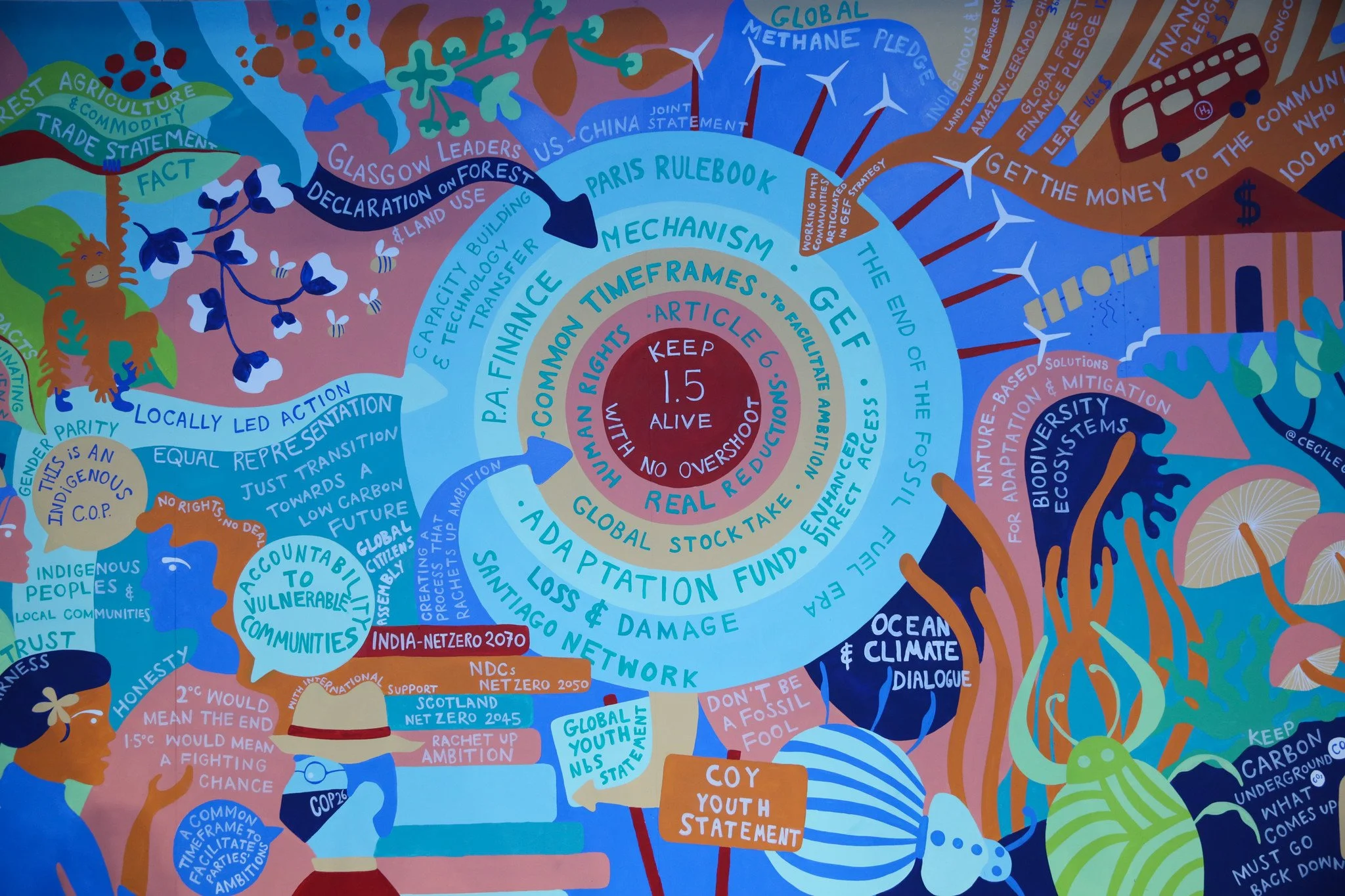COP26: results of global negotiations and Luxembourg's unifying role
News of the recent UN Climate Change Conference (COP26) negotiations has tended to focus on the challenges and the limitations, and we have perhaps heard too little of the hard-won gains. The 26th COP ended on 12 November with a memorable international agreement marking greater ambition in the fight to limit global warming, increased speed in the energy transition and greater solidarity with the countries most affected by climate change. The pact of decisions was voted in despite last-minute revisions by India and China regarding the section on fossil fuels. One GENE Member State, Luxembourg, took a leadership role in the important field of “loss and damage”.
Phasing out coal as an energy source
For the first time in the history of the Conferences of the Parties under the United Nations Framework Convention on Climate Change (UNFCCC), the final decision contains an agreement accepted by all States on accelerating the global energy transition through the abandonment of coal and reduction of fossil fuel subsidies.
The world continues to aim for 1.5 degrees
The international community recognizes the scientific evidence that the world needs to do more the matter of climate protection over the course of this decade to limit global warming to 1.5 degrees. The final decision stipulates that global greenhouse gas emissions must be reduced by 45% during this decade.
Finalization of the "Paris Rulebook"
Six years after the COP21 in Paris, an agreement was reached on the rules for applying the Paris Agreement, including, in particular, the functioning of carbon markets, the update every five years of "contributions determined at the national level" of all parties, and the rules on transparency.
Luxembourg leader in international climate finance
Another central element of the final decision is solidarity with the vulnerable states most exposed to the impacts of climate change. Aid for adaptation to the inevitable consequences of climate change must be doubled by 2025. Luxembourg will provide €220 million as an "international climate finance", half of which for adaptation to climate change in the most vulnerable countries, the highest amount per capita of any country.
Unifying role of Luxembourg in leading the ambition coalition in regard to “loss and damage”
In the midst of negotiations, the British Presidency asked for Luxembourg's support as a diplomatic facilitator in the field of "loss and damage", thanks to the reputation of the Grand Duchy as a committed donor country with a delegation of experienced negotiators in the field of climate and environmental policy. In the final agreement, the area of loss and damage saw significant advancements, particularly with regard to the financing of technical assistance to island states and other vulnerable countries, in order to protect themselves against the immense damage that they risk suffering, and are already suffering from global warming.
Methane in the crosshairs
Alongside the final Glasgow decision, which was accepted by some 200 states, Luxembourg also signed a number of other declarations and initiatives such as the declaration on accelerating the transition towards 100% of the cars and trucks to have zero emissions. Almost 100 countries, including Luxembourg, have also joined the "Global Methane Pledge", the initiative is aimed at reducing methane emissions by at least 30% by 2030 compared to 2020 (useful link: World Leaders Kick Start Accelerated Climate Action at COP26 | UNFCCC).
Against false labelling of nuclear power
Along with Germany, Denmark, Portugal and Austria, Luxembourg further issued a joint statement affirming that nuclear energy is not a solution in the fight against the climate crisis and should not be included in the taxonomy of the European Union as being sustainable (useful link: Joint declaration for a nuclear-free EU taxonomy - government.lu).
Save the lungs of the world
Finally, Luxembourg, along with 141 other countries, pledged to stop and reverse global deforestation by 2025. The end of global deforestation is an absolute precondition for the success of mitigation efforts, measures of adaptation and CO2 sequestration objectives by the world's forests (useful link: World Leaders Kick Start Accelerated Climate Action at COP26 | UNFCCC).
Published by: Luxembourg’s Ministry of the Environment, Climate and Sustainable Development. Read the original article in French here.
This website was created and maintained with the financial support of the European Union and the Ministries and Agencies that support GENE. Its contents are the sole responsibility of GENE and do not necessarily reflect the views of the European Union.


